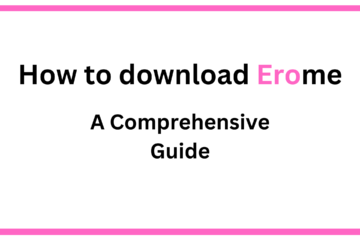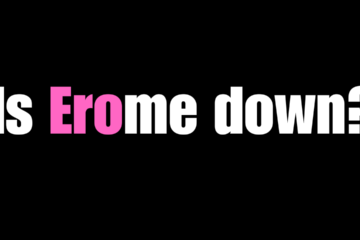Introduction
The phrase May Hashira Erome has surfaced in online discussions, particularly within anime and manga communities. It’s a phrase that prompts curiosity and, for some, a degree of confusion. To understand its significance, we need to dissect its components and explore the context in which it appears. “Hashira” refers to the elite swordsmen in the popular series Demon Slayer: Kimetsu no Yaiba. Erome is a Japanese term, a shortened form of “ero-gēmu” or “erotic game,” and is often used in online spaces to refer to suggestive or explicitly sexual content. This article aims to unpack the complexities of this phrase, examining its origins, interpretations, and the broader cultural landscape surrounding fan-generated content and character depictions.
The intersection of popular characters and adult-themed content is not a new phenomenon. It’s a reflection of how fandoms engage with and reinterpret the stories they love. However, it also raises questions about respect for original works, the boundaries of creative expression, and the potential impact on audiences. We will explore these facets, aiming to provide a balanced and informative analysis.
Related Post: Is Erome down
Understanding the Components: Hashira and Erome
- The Hashira: Pillars of Strength and Character
- The Hashira are the most powerful swordsmen in the Demon Slayer Corps, each possessing unique skills, personalities, and backstories. They are central to the series’ narrative, embodying strength, dedication, and sacrifice. Their diverse personalities and compelling narratives have made them fan favorites, leading to extensive discussions and fan-generated content.
- From the fiery Kyojuro Rengoku to the stoic Giyu Tomioka, each Hashira has a distinct appeal. Their character designs, combat styles, and emotional depth have resonated with audiences worldwide. This deep connection fosters a sense of ownership and creative interpretation among fans.
- The appeal of the Hashira is not merely superficial. They represent ideals and struggles that resonate with viewers. Their battles against demons are metaphors for overcoming personal challenges, making them relatable and inspiring figures.
- Erome: Navigating the Realm of Adult-Themed Content
- Erome is a term deeply rooted in Japanese internet culture. It signifies content that is explicitly erotic or suggestive. Understanding its context is crucial. In the online sphere, it’s often used to categorize fan art, fan fiction, and other forms of creative expression that explore adult themes.
- The use of Erome is not limited to anime and manga. It extends to various forms of media, reflecting the diverse ways in which audiences engage with and reinterpret fictional characters.
- The creation of Erome content is tied to the freedom of expression, but also raises ethical considerations regarding the use of characters and their original context.
The Intersection: May Hashira Erome in Context
- Fan Culture and Creative Expression
- The phrase May Hashira Erome highlights the complex relationship between fan culture and creative expression. Fans often use characters as a canvas for their own interpretations, exploring themes and scenarios that may not be present in the original work.
- This type of fan activity can be seen as a form of appreciation, a way for fans to deepen their connection with the characters they love. However, it also raises questions about the boundaries of creative freedom and the potential for misinterpretation.
- Fandoms are known for creating alternate universes, and what if scenarios, this is a normal part of the fandom experience.
- The Role of Online Communities
- Online communities play a significant role in the dissemination and discussion of fan-generated content. Social media platforms, forums, and dedicated websites provide spaces for fans to share their creations and engage in discussions.
- These platforms can amplify the reach of fan-generated content, but they also contribute to the formation of online subcultures and the development of specific terminologies. The phrase May Hashira Erome is a product of these online interactions.
- The digital age has made the creation and sharing of these types of works very easy, and this has led to a major increase in these types of works.
- Ethical Considerations and Respect for Original Works
- The depiction of beloved characters in adult-themed content raises ethical considerations. It’s essential to consider the impact on the original work and the potential for misinterpretation.
- Creators often intend their characters to embody specific values and ideals. The depiction of these characters in explicit contexts can be seen as a departure from their original intent.
- The balance between freedom of expression and respect for original works is a delicate one. It requires thoughtful consideration and a nuanced understanding of the cultural context.
CHECK RELATED POST: Haven Tunin Erome
Analyzing the Appeal and Controversy
- The Appeal: Exploring Forbidden Themes
- The appeal of May Hashira Erome lies in the exploration of forbidden themes. It allows fans to delve into aspects of the characters that are not explicitly addressed in the original work.
- This exploration can be a form of escapism, a way for fans to indulge in fantasies and desires. However, it also reflects a deeper interest in the characters’ emotional and psychological complexities.
- The human mind is curious, and this curiosity is often the driving force behind the creation and consumption of these types of works.
- The Controversy: Potential for Misinterpretation and Harm
- The controversy surrounding May Hashira Erome stems from the potential for misinterpretation and harm. The depiction of characters in explicit contexts can be seen as disrespectful or exploitative.
- It can also contribute to the objectification of characters and the perpetuation of harmful stereotypes. This is particularly concerning when dealing with characters who are intended to be role models or symbols of strength.
- There is a large difference between consensual adult works, and the exploitation of characters who are minors, this is a line that should never be crossed.
- The Impact on Fandom Dynamics
- The creation and consumption of May Hashira Erome can impact fandom dynamics. It can create divisions within communities, with some fans embracing the content and others rejecting it.
- It can also lead to debates about the boundaries of acceptable fan activity and the role of creators in regulating fan-generated content.
- Fandoms can be very protective of their beloved characters, and any perceived disrespect can lead to heated debates.
Navigating the Complexities: A Balanced Perspective
- Acknowledging the Diversity of Fan Expression
- It’s essential to acknowledge the diversity of fan expression. Fans engage with characters in various ways, and their interpretations are often deeply personal.
- While some forms of fan activity may be controversial, it’s important to approach them with a degree of understanding and empathy.
- Fans should be able to enjoy the properties they love, in the manner that they enjoy, as long as it does not cause harm.
- Promoting Responsible Engagement
- Promoting responsible engagement with fan-generated content is crucial. This involves encouraging fans to be mindful of the potential impact of their creations and to respect the original works.
- It also involves fostering open and respectful dialogue within online communities, allowing fans to express their opinions without resorting to personal attacks or harassment.
- Encouraging creators to label their works appropriately, is also a positive step.
- Understanding Cultural Context
- Understanding the cultural context is essential for interpreting fan-generated content. The use of terms like Erome and the prevalence of adult-themed fan works are rooted in specific cultural norms and traditions.
- By understanding these contexts, we can gain a more nuanced perspective on the motivations and intentions of fans.
- Cultural differences create a wide range of acceptable and unacceptable behaviours.
Conclusion
The phrase May Hashira Erome represents a complex intersection of fan culture, creative expression, and ethical considerations. It highlights the diverse ways in which audiences engage with and reinterpret popular characters. While the creation of adult-themed content can be controversial, it’s essential to approach it with a balanced perspective, acknowledging the diversity of fan expression and promoting responsible engagement.
Understanding the cultural context and fostering open dialogue within online communities are crucial for navigating the complexities of this phenomenon. By doing so, we can create a more inclusive and respectful environment for fans to express their creativity and share their passion for beloved characters. It is important to remember that at the core of all of this, is a love for the original work, and the characters within it.



